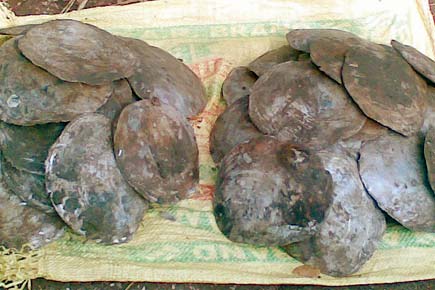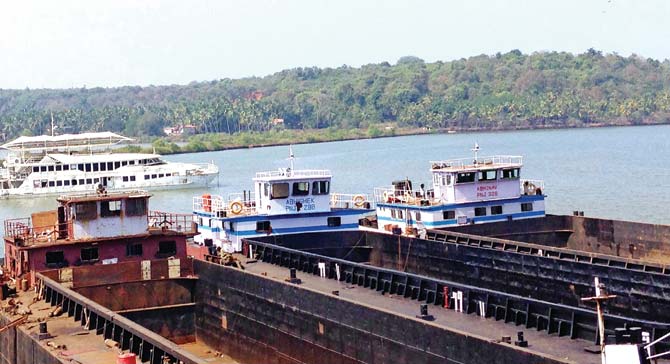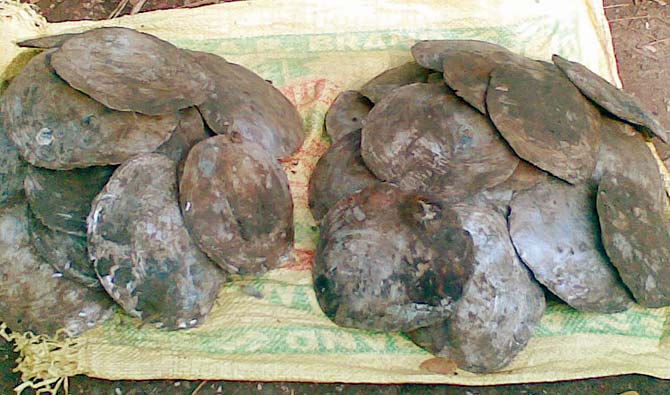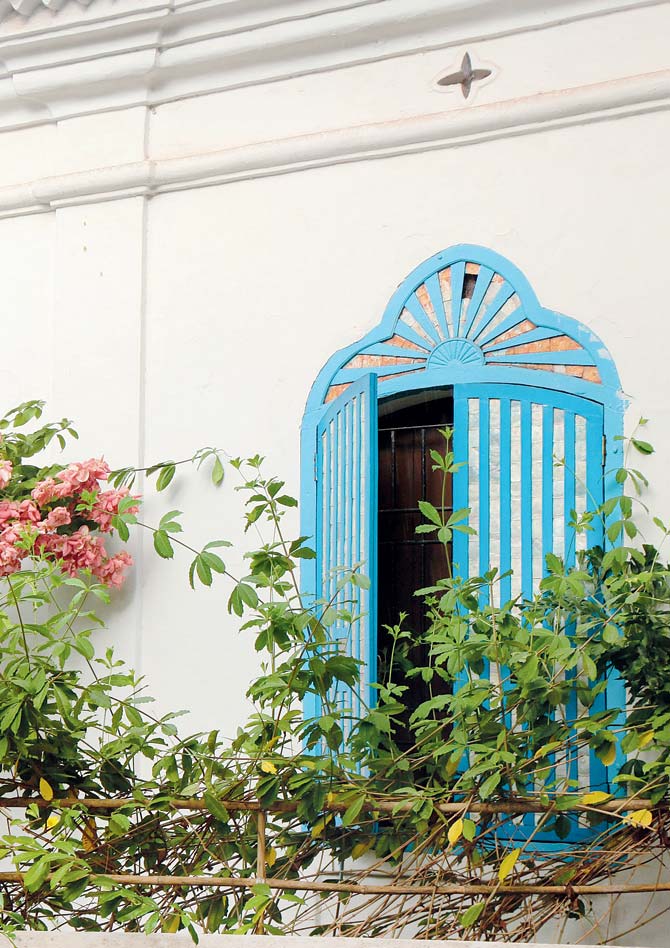The Goa government’s plan to build a marina on the eco-sensitive Chicalim Bay has got the green warriors concerned about the fate of the region’s rare, protected windowpane oysters

Declared a Schedule IV species under the amended Protection of Wildlife Act, 1972, commercial exploitation of windowpane oysters continues.
ADVERTISEMENT
Union Transport Minister Nitin Gadkari’s penchant for announcing grandiose projects during his Goa visits may backfire on the BJP-led Goa government, given the long history of opposition by civil society in Goa to environmentally-unfriendly mega projects.

A view of Chicalim Bay. The bay is home to windowpane oysters and has been declared an eco-sensitive fragile area
During a December 2015 visit to celebrate Union Defence Minister Manohar Parrikar’s birthday, Gadkari announced the building of an Eiffel Tower-like structure with a viewing gallery in the middle of a new bridge to be built on river Zuari which separates north Goa from south. His reason? "So that people can admire the beauty of Goa on both sides!" Then, on New Year’s Day, he announced projects worth more than R10,000 crore state, including five other bridges across the state. After chairing a meeting of the Maritime States Development Council (MSDC) in Goa, he also announced the setting up of two large marinas, besides other floating jetties to improve inland waterway connectivity as part of his ‘Sagarmala’ project’. This announcement, however, has come under attack by Goa environmentalists who fear the already endangered ‘window-pane oysters’ won’t survive any more assaults.

Declared a Schedule IV species under the amended Protection of Wildlife Act, 1972, commercial exploitation of windowpane oysters continues. Pics/Rui Araujo
Saving oyster bay
The marina project proposed at Sancoale, on the banks of the Zuari river, is facing opposition from locals under the banner, the Chicalim Villagers Action Committee (CVAC). Families in the area are dependent on fishing and selling of shell-fish, and the Chicalim Bay, adjacent to Sancoale, is probably the only place in Goa where the fast-vanishing ‘window-pane oysters’ are still found. This is the reason that the bay has been declared by the Goa State Biodiversity Board as an eco-sensitive fragile area
with "innumerable natural and rare resources".

Window panes made from the shell of windowpane oysters are a recurring feature of old Goa homes. Pic/Heta Pandit
Rui Araujo of the CVAC, says Chicalim Bay is the only area left on the southern bank of the Zuari, which is still largely intact. Almost the entire southern bank is now occupied by shipyards, where all kinds of boats are built, repaired, docked and broken, while the Mormugao harbour, one of the biggest in the country, is located at the mouth of the river.
"This year, I have not seen a single window pane oyster here. It’s a losing battle, but we will continue to fight," says Araujo. "They were available even last year. But due to the barge cutting activities all around, they have decreased in number. Last year, you could see hundreds of people coming and collecting the oysters. They are usually available from December to February."
Embedded in Goan history
The flat shells (nacres), from window-pane oysters have been used for centuries in traditional window panes for Goan homes. Till last year, they were still harvested by local fishermen and sold for R100 a portion (10 oysters). This year, they are yet to make their appearance in fisherwomen’s baskets. They have been declared a Schedule IV species under the amended Protection of Wildlife Act, 1972. But, despite a ban on their commercial exploitation by the Ministry of Environment and Forests, there has been unrestricted harvesting at Chicalim. Pearls are also harvested from these oysters. While the oyster meat is sold, "the shells are simply thrown away," says Araujo. Mumbai resident Heta Pandit, also founder member of the Goa Heritage Conservation Group, and owner of an old Goan home, says, "Like many other home owners in Goa, I am a frustrated home owner in Saligao. It has become very difficult to repair and replace these shells on our windows. We need a synthetic substitute, since fishing for pearls and shells is harming marine ecology."
Not another marina
Local MLA and former minister for environment, Alina Saldanha, of the BJP, says she’s opposed to the marina. On the northern bank of the Zuari is Nauxim, the site of the proposed second marina, which too has been opposed, by locals, and by local MLA, Vishnu Surya Wagh, also of the ruling BJP. Three years ago, the Goa government set up an Investment Promotion Board (IPB), through an Act, to fast-track clearances for mega projects. The board got powers to override other statutory laws and bodies. Now, the IPB is being challenged.
Leading this charge is the Goa Bachao Abhiyan (GBA), formed a decade ago to save what is left of Goa’s pristine natural and cultural heritage. Recently, the GBA began a series of meetings with other civil society and local village groups across the coastal state to launch a legal challenge to the IPB.
Architect Raboni Saha, convener of GBA, says, "The reason given by the proponents of this Act is that they have faced massive corruption within all departments, and it is driving investment away. So to ‘override corruption’ they proposed the main clause which jump on departments. The IPB is okay as a body to seek investment, within the boundaries of policy and plan as set by the Regional Plan.
"They cannot, though, be the authority to clear change of land use by overriding other departments. The IPB Act could well have been done without this nonsense of overriding clauses," she says, adding that the GBA is now going to approach court.
 Subscribe today by clicking the link and stay updated with the latest news!" Click here!
Subscribe today by clicking the link and stay updated with the latest news!" Click here!







